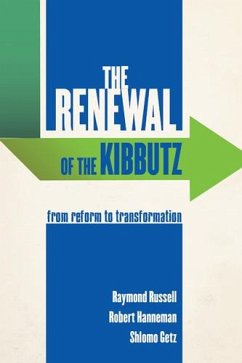This book explores the waves of kibbutzim reforms since 1990. Looking through the lens of organizational theories that predict how open or closed a group will be to change, the authors find that the less successful kibbutzim were the most receptive to reform, and reforms then spread through imitation from the economically weaker kibbutzim to the strong. Survey data is used to understand which reforms were the most common and which were most successful.
Hinweis: Dieser Artikel kann nur an eine deutsche Lieferadresse ausgeliefert werden.
Hinweis: Dieser Artikel kann nur an eine deutsche Lieferadresse ausgeliefert werden.








